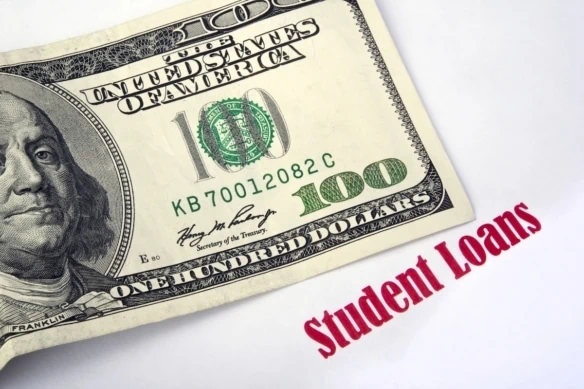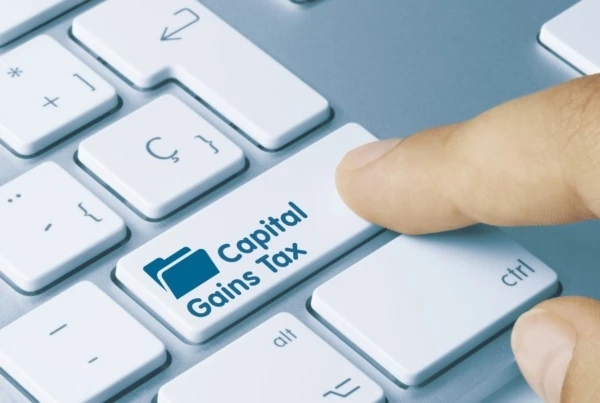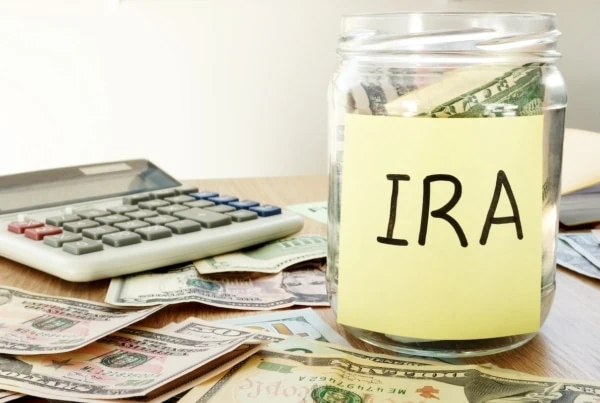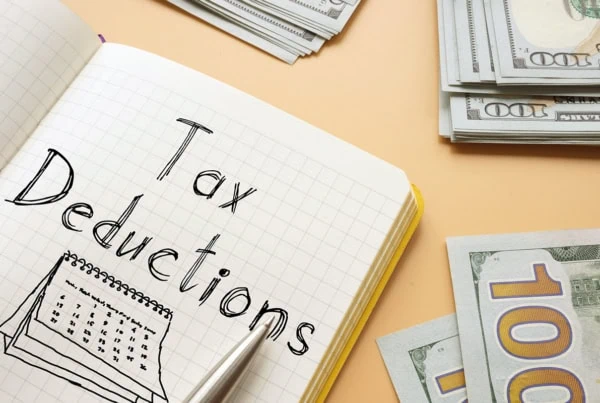After nearly three and a half years, student loan payments are back. And with it comes financial hardship to many former students who are already struggling in the post-pandemic economy. It can be difficult squeezing student loan payments back into a tight budget, or even taking on payments for the very first time.
For some young adults, they’ll have Mom and Dad to the rescue. The parents don’t want to see their children struggle (and maybe don’t want them moving back in with them?), so they offer to take over the student loan payments for a while.
But one important question always pops up under this scenario: Who gets to claim the student loan interest tax deduction when parents make payments? As explained below, it depends on who owns the loan.
Featured Financial Products
Student Loan Interest Deduction
Before jumping into a parent’s payment of a child’s student loans, let’s take a general look at the student loan interest deduction, which can trim your federal income tax bill.
The deduction is worth up to $2,500 for a person who pays interest on a student loan during the year. However, depending on your income and the filing status selected on your federal income tax return, the maximum amount can be reduced to zero.
For the 2024 tax year, the full student loan interest deduction is phased out if your modified adjusted gross income (AGI) is between:
- $80,000 and $95,000 for single filers, head-of-household filers, or surviving spouses
- $160,000 and $190,000 for married couples filing jointly
So, for example, the deduction is not available at all if you’re single and your modified AGI is over $95,000.
YATI Tip: In most cases, modified AGI is simply your AGI as calculated on your federal return, before subtracting any deduction for student loan interest. However, if you claim certain tax breaks for foreign income or foreign housing, those amounts are included in your modified AGI, too.
You’re also ineligible if you’re married but you and your spouse file separate tax returns, or if you can be claimed as a dependent on someone else’s tax return for the year.
In addition, the underlying loan must be taken out solely to pay education expenses:
- For you, your spouse, or a person who was your dependent when you took out the loan
- Paid or incurred within a reasonable period of time before or after you took out the loan
- For education provided during an academic period for a student enrolled at least half-time in a program leading to a degree, certificate, or other recognized educational credential
This can include both federal and private student loans. However, you can’t claim the tax deduction for interest paid on loans from a relative or from a 401(k) plan.
Related: Should You Invest or Pay Off Student Loans?
Tax Deductions When Parents (or Someone Else) Pays Your Student Loan
There’s another important requirement that must be satisfied in order to claim the tax deduction for student loan interest: You must be legally obligated to make interest payments under the terms of the loan.
As a result, if your parents pay your student loan (i.e., you’re the only one legally obligated to pay off the loan), then they can’t claim the student loan interest deduction. This is also the case if someone else (e.g., another relative, a friend, an employer, etc.) makes payments on your student loan.
The good news is that you can still claim the student loan interest deduction as long as you meet all the deduction’s other requirements. If you’re legally obligated to make the student loan payments, but your parents or someone else who isn’t under a legal obligation to make payments nevertheless makes payments on your behalf, the IRS kind of looks the other way and treats this as if you received the money from your parents and then made a loan payment yourself.
Parents Claim You As a Dependent on Their Tax Return
Watch out if your parents claim you as a dependent on their federal tax return. Remember that you’re not eligible for the student loan interest deduction if you can be claimed as a dependent on someone else’s tax return for the year.
As a result, if your parents make student loan payments on your behalf, but they also claim you as a dependent on their return, then nobody can claim the student loan interest deduction for those payments. Your parents can’t claim the deduction because they’re not legally required to make payments, and you can’t take it because you’re not qualified.
Parents Co-Signed Your Student Loan
The situation is a bit different if a parent (or other person) co-signs your student loan. A co-signer is legally obligated to pay off your student loan if you don’t pay it yourself. So, if a parent co-signed your student loan and actually makes payments on your behalf, then your parent can claim the student loan interest deduction for any payments he or she makes.
That also means you can’t take the deduction. In this case, the IRS won’t treat it as if you actually made the payment yourself.
Parents Take Out Loan for Your Education
If your parents (or someone else) takes out a loan themselves to pay for your educational expenses, then they can claim the student loan interest deduction for any payments they make (assuming other requirements for the deduction are satisfied). That’s because they are legally obligated to pay off the loan.
Since you’re not obligated to pay off the loan in this situation, you can’t claim the deduction on your return.
Your parents can even claim the deduction for paying their own loan if they claim you as a dependent on their tax return. That’s because the rule excluding dependents only applies to the person claiming the deduction.
Featured Financial Products
Related: How Much to Save for Your Kid’s College
Other Tax Breaks for Student Loans
In addition to the student loan interest deduction, there are a few other tax breaks available that can help ease the pain of having to make student loan payments.
Student Loan Forgiveness and Repayment Assistance
In most cases, federal income tax must be paid on any debt that’s forgiven. However, no tax is due on a student loan that’s forgiven or otherwise canceled from 2021 to 2025.
In addition, student loan debt generally isn’t taxed if it’s canceled because of a provision in the loan agreement requiring cancellation if you work for a certain period of time in certain professions.
If someone gives you money to pay off your student loan (instead of having your loan canceled), those payments are also excluded from your gross income if they’re received from either:
- The National Health Service Corps Loan Repayment Program
- A state education loan repayment program eligible for funds under the Public Health Service Act
- Any other state loan repayment or forgiveness that provides increased availability of health services in underserved or health professional shortage areas
Payment of Student Loans with 529 Plan Funds
If 529 plan funds aren’t used for qualified education expenses, a 10% penalty applies and related earnings are considered taxable income.
However, if there’s money leftover in a 529 plan after all the beneficiary’s educational costs have been paid, up to $10,000 of the unused funds can be used to pay off student loans for the beneficiary or a sibling.
Related: Roth IRA vs. 529 Plan: Which Is Better For College Savings?
Employer-Provided Educational Assistance
Your employer can pay up to $5,250 of your student loan debt each year through a written educational assistance program, and those payments are tax-free for you. However, you generally must pay tax on any employer-provided student loan assistance over the $5,250 annual cap.
The bad news is that this benefit is only available for student loan payments through 2025 (it will continue for other forms of educational assistance, though).
Featured Financial Products
Related:










